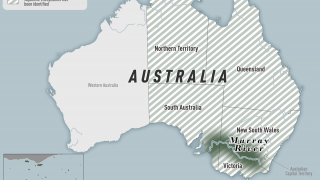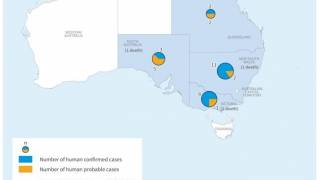Nepal's Japanese Encephalitis Outbreak Claims 17 Lives

Over the past few decades, Japanese encephalitis (JE) has been a significant concern in the Federal Democratic Republic of Nepal, particularly during the annual monsoon season in the Himalayan Mountains.
According to news from The Kathmandu Post, 63 people have been infected with the mosquito-borne zoonotic viral disease since June 2024. Tragically, as of September 22, 2024, 17 people, including children, have died from JE infections this year.
This ongoing JE outbreak has been detected in 29 Nepal districts, including those in the Kathmandu Valley, which is located at 5,000 feet, where virus-carrying mosquitoes are found.
Nepal's health department estimates that about 12 million people, out of a total population of 31 million, are at risk of JE in 2024. Additionally, many of the one million visitors to Nepal this year may need protection from JE.
The U.S. Centers for Disease Control and Prevention (CDC) says the JE virus is transmitted to humans through the bite of infected Culex mosquitoes. Pigs play an essential role in the natural cycle and serve as an amplifier host without suffering from disease. They maintain prolonged high-level viremia, which allows mosquitoes to get infected easily.
People are dead-end hosts in the JEV transmission cycle, says the CDC.
As of October 2024, the CDC has identified 24 countries in Southeast Asia and the Western Pacific Region reporting JE cases.
For example, in May 2024, Taiwan recorded two JE patients, including one death.
And in India, where JE has been detected since 1952, a child in Jabalpur reportedly died due to JE infection last month.
Also included in the KP news article, Dr. Abhiyan Gautam, chief of the Immunisation Section at the Family Welfare Division, stated, "We have also requested various aid agencies, including the Global Alliance for Vaccines and Immunisation, to supply JE vaccine."
Recent data from Nepal's Health Ministry show that less than 50% of the infected patients were inoculated with the JE vaccine. JE vaccination is not routinely recommended for visitors hiking to higher elevations such as Mt. Everest or spending short periods in Kathmandu.
However, JE vaccination is recommended by the CDC for expatriates living in Nepal.
While there are very few local JEV cases in the United States, the CDC cautions the millions of Californians who travel west to Asia and Pacific Ocean countries to protect themselves from infection.
In the U.S., Valneva SE's IXIARO® (JESPECT®) vaccine has been approved by the U.S. FDA and CDC for many years. This safe and effective vaccine is authorized for most children and adults traveling to Japanese encephalitis endemic areas.
As of October 5, 2024, IXIARO is available at travel vaccine clinics and pharmacies in the U.S.
Our Trust Standards: Medical Advisory Committee





